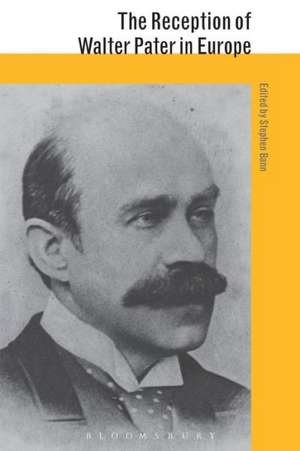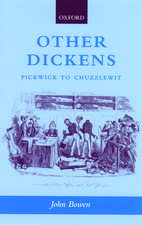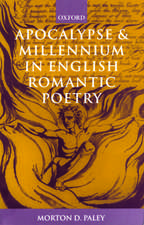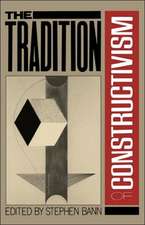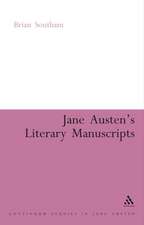The Reception of Walter Pater in Europe: The Reception of British and Irish Authors in Europe
Editat de Stephen Bannen Limba Engleză Paperback – 2 ian 2013
| Toate formatele și edițiile | Preț | Express |
|---|---|---|
| Paperback (1) | 188.34 lei 6-8 săpt. | |
| Bloomsbury Publishing – 2 ian 2013 | 188.34 lei 6-8 săpt. | |
| Hardback (1) | 1877.21 lei 6-8 săpt. | |
| Bloomsbury Publishing – 27 noi 2004 | 1877.21 lei 6-8 săpt. |
Din seria The Reception of British and Irish Authors in Europe
- 44%
 Preț: 2166.85 lei
Preț: 2166.85 lei - 36%
 Preț: 192.42 lei
Preț: 192.42 lei -
 Preț: 189.28 lei
Preț: 189.28 lei -
 Preț: 192.15 lei
Preț: 192.15 lei - 34%
 Preț: 229.75 lei
Preț: 229.75 lei -
 Preț: 193.96 lei
Preț: 193.96 lei -
 Preț: 398.19 lei
Preț: 398.19 lei -
 Preț: 192.99 lei
Preț: 192.99 lei -
 Preț: 190.44 lei
Preț: 190.44 lei - 34%
 Preț: 230.90 lei
Preț: 230.90 lei -
 Preț: 586.90 lei
Preț: 586.90 lei -
 Preț: 190.81 lei
Preț: 190.81 lei - 36%
 Preț: 192.15 lei
Preț: 192.15 lei - 36%
 Preț: 192.42 lei
Preț: 192.42 lei - 44%
 Preț: 1667.84 lei
Preț: 1667.84 lei - 44%
 Preț: 1317.79 lei
Preț: 1317.79 lei - 44%
 Preț: 1317.79 lei
Preț: 1317.79 lei - 44%
 Preț: 1433.99 lei
Preț: 1433.99 lei - 35%
 Preț: 193.18 lei
Preț: 193.18 lei -
 Preț: 192.15 lei
Preț: 192.15 lei -
 Preț: 229.37 lei
Preț: 229.37 lei - 17%
 Preț: 329.44 lei
Preț: 329.44 lei -
 Preț: 1893.83 lei
Preț: 1893.83 lei -
 Preț: 1667.84 lei
Preț: 1667.84 lei - 14%
 Preț: 1471.24 lei
Preț: 1471.24 lei - 36%
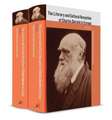 Preț: 1783.83 lei
Preț: 1783.83 lei
Preț: 188.34 lei
Nou
Puncte Express: 283
Preț estimativ în valută:
36.04€ • 37.72$ • 29.100£
36.04€ • 37.72$ • 29.100£
Carte tipărită la comandă
Livrare economică 31 martie-14 aprilie
Preluare comenzi: 021 569.72.76
Specificații
ISBN-13: 9781441130402
ISBN-10: 1441130403
Pagini: 328
Ilustrații: black & white illustrations
Dimensiuni: 156 x 234 x 17 mm
Greutate: 0.46 kg
Editura: Bloomsbury Publishing
Colecția Bloomsbury Academic
Seria The Reception of British and Irish Authors in Europe
Locul publicării:London, United Kingdom
ISBN-10: 1441130403
Pagini: 328
Ilustrații: black & white illustrations
Dimensiuni: 156 x 234 x 17 mm
Greutate: 0.46 kg
Editura: Bloomsbury Publishing
Colecția Bloomsbury Academic
Seria The Reception of British and Irish Authors in Europe
Locul publicării:London, United Kingdom
Caracteristici
Includes a historical timeline of Pater's European reception and listing of his major essays.
Notă biografică
Stephen Bann is Professor of History of Art at the University of Bristol, UK.
Cuprins
Series Editor's Preface Elinor ShafferAcknowledgementsList of ContributorsTimeline: European Reception of Pater by Stefano Evangelista, University of BristolIntroduction by Stephen Bann, University of BristolI Italian1. 'The Sterile Ascetic of Beauty': Pater and the Italian fin de siècle by Benedetta Bini, University of Tuscia2. The Fortune of The Renaissance in Italian art criticism (1894-1944) by Maurizio Ascari, University of Bologna3. Pater's Reception in Italy by Elisa Bizzotto, University of Venice-Ca'FoscariII French4. 'Influence occulte': The Reception of Pater's works in France before 1922 by Emily Eells, University of Paris X-Nanterre5. 'An untimely soul'? Pater's academic reception in France from the early 1920s by Benédicte Coste, Stendhal University, GrenobleIII German6. A German View of Pater by Wolfgang Iser7. 'Time flowing and time suspended': Hoffmansthal's variations on a Paterian theme by Ulrike Stamm, Berlin8. The critic's critic: Rudolf Borchardt's Centenary essay 'Walter Pater' (1939) by Martina Lauster, University of ExeterIV Hungarian9. Pater in Hungary by Mihály Szegedy-Maszák, Eötvös University, Budapest V Czech10. Pater in Czech culture: Milos Marten's Essay on Marius the Epicurean (1911) by Martin Prochàzka, Charles University, PragueVI Polish11. 'Our "I" and History': The Polish Reception of Pater by Piotr Juszkiewicz, Adam Mickiewicz University, PoznanVII Portugese12. Fernando Pessoa and the reception of Pater in Portugal by Maria Teresa Malafaia, University of Lisbon and Jorge Miguel Bastos da Silva, University of OportoVIII Catalan and Spanish13. War and Peace - Pater's part: Translations in 1930s and 1940s Spain by Jacqueline Hurtley, University of BarcelonaBibliographyIndex
Recenzii
If your aim is to understand why he appealed and appeals to many diverse readers in many European languages, then you will find the book immensely illuminating...collectively [these essays] reveal much about the complex process in which a grand reputation is established.
